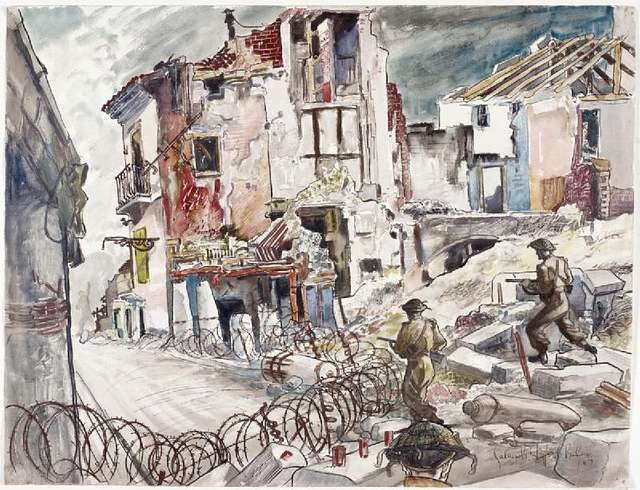For many moons of my time researching the 504th Parachute Infantry, I perhaps spent the least amount of time on the November 1943 mountain campaign. I distinctly remember Roy Hanna, who served as a lieutenant in the campaign, once remaking to me that he doesn’t think he ever fired his gun. I admit I was less than thrilled about having to write about the period again for Battle Surgeons - it was undramatic. What stories could I tell to make it lively? Tackling this question spurred me to think about the campaign in a way I hadn’t before: how was success achieved if a gun was never fired? And therein lies the remarkable aspect of the campaign.
In the Upper Volturno River Basin, Colonel Reuben Tucker sensed the German’s strength: artillery centers out of his reach and god-like observation from the hills which rendered using the one road on the valley floor impractical. In formulating his plan for the coming weeks, Colonel Tucker denied these strengths to the Germans, and simultaneously played his strength: a light, agile force with men of above-average physical condition.
At night, Tucker would move his battalions one at a time across the valley floor and up to the high rugged mountaintops dominating the small villages. They would position themselves on the mountain in a “reverse slope defense” out of view of the Germans. In doing this, he denied the enemy an artillery target.
Come morning, the Germans in the village found themselves with a decision to make – stay and rot, or withdraw. They always withdrew and the paratroopers were able to inflict casualties in a one-sided battle as they vacated.
The methods Colonel Tucker and his 504th used for infiltrating the Upper Volturno River Basin were included in an early-1944 Training Memorandum for units deploying to Italy. For assaulting a village, the tactics taught at Fort Benning’s Infantry School might work fine - but for assaulting a mountain village, the German tactics rendered that doctrine impractical. “That system,” one 504th officer wrote in the training memorandum, “costs too many men in the sorts of towns we run into in these mountains.”
The November mountain campaign serves as an example of why understanding the essence of war is so much more important than the formulae of war. This is the downfall of such things as the 5-paragraph operations order or the Military Decision Making Process; the former eschewed by the very individuals (Prussians) who created it in an attempt to limit “practices that served to limit the freedom of officers to address the peculiarities of the situations that they encountered.”
The study of military history is a great way to build practical wisdom and a creative military mind able to cope under that freedom.






For the tale of the Prussian origins, and subsequent Prussian rejection, of the five paragraph order, please see:
short version: https://tacticalnotebook.substack.com/p/the-paradox-of-the-five-paragraph
long version: https://tacticalnotebook.substack.com/p/advanced-land-warfare